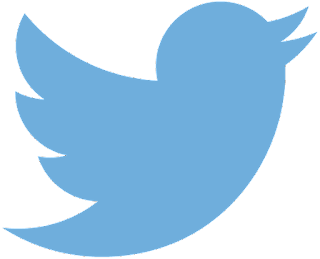"The best teachers are the best thieves."
One of my mentors in education, Janet Fortune, began an education class at Berea College with this statement. She explained that teachers must become adept at sharing their practice with other educators while also borrowing and utilizing concepts from colleagues that will have a positive impact on students. By combining resources, teachers better the class experience for students and help young people fulfill their vast potential.
I have subscribed to this theory throughout my time as an educator. I have travelled to schools, gone to countless conferences, and even cold-called and emailed teachers that I had no prior connection with to understand techniques or lessons that were being used in the classroom. Whatever it takes to make my classroom the best it could be, I am willing to do.
This drive isn't unique to me; many educators have the same passion and determination to make their classes awesome! Social media has made the process of becoming a better thief even easier and more convenient! Pinterest, Twitter, and LinkedIn are three great social media tools that will take any teacher to Robin Hood status!
For many educators, Pinterest is already a tool in their tool box. Some data may reveal that Pinterest isn't as prevalent in the educator's tool bag as one might think.
According to Edison Research, 64% of Pinterest users are 35 or younger and 70% are female. Meanwhile, in 2010, the median age in the United States of teachers reached over 37 years old- up nearly 2% from 10 years prior, this according to The Center for Public Education. Also, according to The National Center for Education Statistics, in 2011-2012, 76% of public educators were female.
So, for many educators, the joys of discovering inspiration via Pinterest is not a reality.
Pinterest can be a muse for educators looking for guiding light on a variety of topics. Looking for a quick activity for an advisory group or a homeroom? Pinterest has that! Wanting to jazz up the decor in your space? Pinterest has that! Trying to gather ideas for reconfiguring your learning space? Pinterest has that! How about finding some new posters for your classroom? Pinterest has that, as well!
Not only can an educator find these items via Pinterest, but you can create your own account and organize your new-found gems for easy location down the road.
While Twitter can have many wonderful applications for your classroom as a teaching tool, do you, as an educator, take full advantage of Twitter as a tool for professional development? Twitter is an awesome tool for collaboration with educators all over the country.
Have you participated in a chat?
There are many names, (live chat, Twitter chat, tweet chat) but the idea is consistent. Educators can use Twitter as a vehicle for real-time conversations on a variety of topics. You can observe the chat or participate by answering and asking questions. These chats are a great way to connect with other educators and further collaboration among professionals in education.
Looking for a list of education-themed chats on Twitter to get you started? The International Society for Technology in Education (ISTE) has put together a list here. A couple that I have been into, lately, are the Lausanne Learning Institute's chat on Thursdays at 8pm Central (#llichat) and Learn Like a Pirate (#learnlap), which has regular chats on varied topics.
Okay, so you have a LinkedIn account. You signed up for it a few weeks ago, or months, or years, for that matter. You aren't looking for a new job, so you don't monitor the account regularly.
This is a missed opportunity!
LinkedIn has numerous communities that you can join to network with educators from around the country. Educators can, also, follow the pages of thought leaders in education, schools from around the country, or periodicals, journals, and other educational publications. This is a great way to keep up with trends and get quick access to reading that may further your professional practice.
Of course, there is also the opportunity to use LinkedIn for its intended purpose. LinkedIn is an incredible tool for networking with educators around the world! Meet someone at a conference, or at a regional meeting, or at a mixer? Use LinkedIn to keep up with your latest contact without the hassle of storing a business card.
LinkedIn is also a great way to reach out to someone and make an initial introduction. Finding your next keynote speaker, or professional development experience, or your next career opportunity may be as simple as inviting someone to connect with you.
The opportunity to write and publish your own articles via LinkedIn is also a great feature. Put your thoughts out there and invite others to connect with you to further your own pedagogy.
Use Pinterest, Twitter and LinkedIn to make you the best thief you can possibly become- your students will thank you for it!
Please leave comments if you have any questions or need further clarification.
Check out my YouTube channel: Chaka Cummings (The Dedicated Educator). Also, find me on LinkedIn and check out some of my published posts on education.






